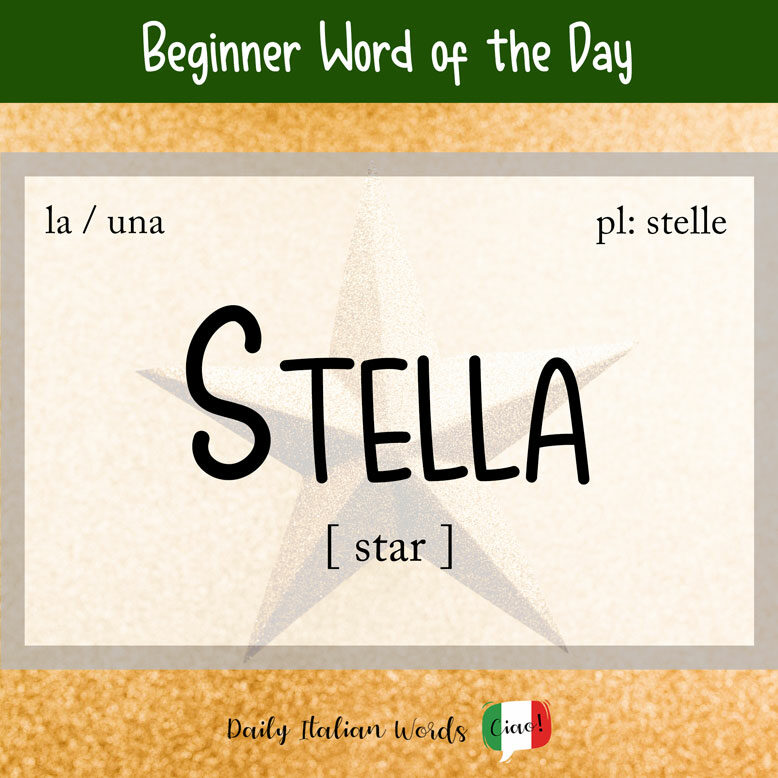Gazing up at the sky on a dark clear night, it is difficult not to be overwhelmed by the sheer number of stars that are visible to the naked eye. Sometimes, if you’re lucky and find yourself in a dark area far away from the city lights, you may even catch a glimpse of the Via Lattea (Milky Way)!
The word for star in Italian is stella (feminine, plural: stelle).

Just as in English, it is used to refer to the celestial body as well as the geometrical shape.
Il Sole è una stella di dimensioni medio-piccole.
The sun is a medium-small star.
La stella ha cinque punte.
The star has five points.

Here are a few useful vocabulary items that contain the word stella used in its literal sense:
- stella cadente = falling/shooting star
- stella cometa = comet
- stella di natale = poinsettia
- stelle filanti = streamers
- stella guida = guiding star
The words stella (in Italian) and star (in English) can also mean a famous celebrity. If you live in Italy, you will have surely heard of the well-known reality TV show called Ballando con le Stelle (Dancing with the Stars), which is the Italian version of Strictly Come Dancing.
Fra i donatori troviamo stelle del cinema e cantanti.
Among the donors there are movie stars and singers.
Stella or the diminutive stellina (little star) can also be used as a term of endearment for a young girl or woman. It is also a given name for a female in Italy.
Ciao stella, vieni a giocare con noi?
Hi sweetie, are you coming to play with us?
To say that someone is born lucky (or unlucky), you can use the following idioms:
- Essere nato sotto una buona stella = To be born under a good star
- Essere nato sotto una cattiva stella = To be born under a bad star
If you like to make home improvements, you probably own a set of screwdrivers. The cacciavite a stella is the star or star-head screwdriver.
Finally, stella di mare (lit. star of the sea) means starfish in Italian.
Heather Broster is a graduate with honours in linguistics from the University of Western Ontario. She is an aspiring polyglot, proficient in English and Italian, as well as Japanese, Welsh, and French to varying degrees of fluency. Originally from Toronto, Heather has resided in various countries, notably Italy for a period of six years. Her primary focus lies in the fields of language acquisition, education, and bilingual instruction.


